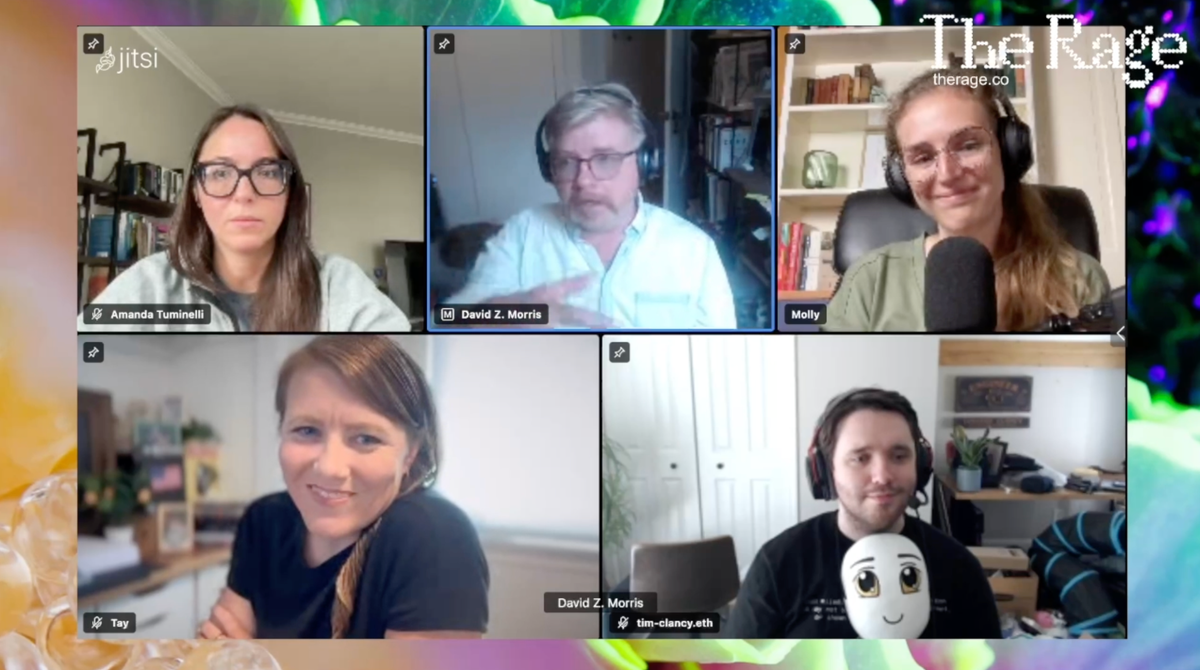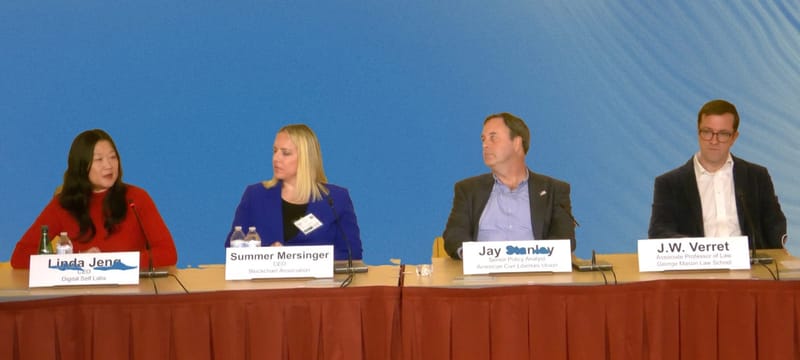DOJ Says It Will No Longer Prosecute Developers For Writing Code
But not everyone is convinced.

Last week, Matthew Galeotti, Acting Assistant Attorney General in the DOJ’s Criminal Division, made headlines with remarks at the American Innovation Project pushing back on the Department's prosecutions against cryptocurrency developers.
Galeotti stated that the Department would no longer bring prosecutions under money licensing laws pertaining to USC 18 §1960(b)(1)(C), which criminalizes the knowing transmission of illicit proceeds, in certain cases – a part of the law that had previously been exempt from Deputy Attorney General Todd Blanche's April memo.
In the last four weeks, both Samourai Wallet developers Keonne Rodriguez and William Hill plead guilty to conspiracy to violate §1960(b)(1)(C). A week later, a jury found Tornado Cash developer Roman Storm guilty of the same charge. The three are now each facing up to five years in federal prison.

What the DOJ Says
Galeotti stated that the DOJ would continue to bring charges under §1960(b)(1)(C), but clarified the circumstances under which such prosecutions would take place.
"Many developers have relied on regulatory guidance, to suggest that, non-custodial cryptocurrency software does not constitute an unlicensed money transmitting business. While that guidance may not be binding on the department, its implications can of course factor into prosecutor’s charging decisions," Galeotti stated, referring to 2019 FinCEN guidance that exempted non-custodial services from money transmission laws.
"Where the evidence shows that software is truly decentralized and solely automates peer-to-peer transactions, and where a third-party does not have custody and control over user assets, new 1960(b)(1)(C) charges against the third-party will not be approved," Galeotti added.
"The fact the DOJ acknowledged that software developers should not be held responsible for third party’s misuse of their code affirms what we have been advocating for years," says Amanda Tuminelli of the DeFi Education Fund. "Let’s celebrate this as a moment of progress, and remember that there is still more work to be done to change the law permanently."
"For developers like Storm facing these charges, the guidance could be pivotal. His case has become a litmus test for how far prosecutors can hold software creators liable for others’ actions," writes Eleanor Terrett of Crypto in America.
"There are many ways that Roman’s counsel can use this speech in advocating for him, either to get the 1960 charge dismissed or to make this argument optically to an appellate court,” Terrett quotes Tuminelli. "The key point is that from this day on, developers can now point to this speech and say the DOJ acknowledged that prior to August 21st, 2025 the law was unclear on what it meant to be operating a money transmitting business.”

What Critics Say
Other advocates remain skeptical. "The fact that this is merely a policy of prosecutorial discretion rather than a binding interpretation of the law leave the DOJ a lot of space to find other avenues to criminalize publishing code," writes Coin Center's Peter van Valkenburgh on X, noting that Galeotti made an important caveat in his speech, by stating that "if criminal intent is present, other charges may be appropriate. All of a subject’s conduct and the services they provide end-to-end will be considered.”
Speaking to Gaelotti's statement that "merely writing code without ill intent is not a crime," Valkenburgh additionally points out that "there is no intent element to getting first amendment protection for the mere publication of speech. Nor should intent enter into the question of whether by publishing code one is 'transmitting' or not."
"As we learned after the original release of the Blanche memo, mere statements about not misusing their prosecutorial discretion are insufficient. The DOJ or the Office of Legal Counsel and perhaps Treasury should offer authoritative interpretations of the limit," Valkenburgh concludes.
"People have ignored how heavily qualified that statement was also," comments Max Levalley of GFX Labs on X. "They could still prosecute him, or anyone else, based on providing the interface because they limited it to code that is decentralized, neutral, and noncustodial. [Money Transmission] is about custody/control--hence the risk to to be regulated--and always has been."
The prosecutions of Samourai Wallet and Tornado Cash developers went ahead despite previous claims that the DOJ would no longer seek to hold developers accountable for the actions of their users.
Independent journalism does not finance itself. If you enjoyed this article, please consider making a donation. If you would like to note a correction to this article, please email corrections@therage.co








